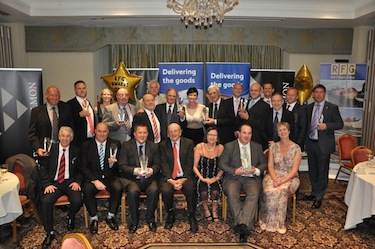Class 68 wins RFG Environmental Innovation Award
DRS are delighted to announce that the New Class 68 Locomotive has won the Rail Freight Group Environmental Innovation Award 2014.
The new, highly efficient and powerful locomotive is specifically designed to meet the demands of both UK Rail-Freight and Passenger Operations.
The Class 68 surpassed all expectations during testing phases and began operating services on 29th July 2014 when the locomotive hauled its first train for Tesco from Mossend to Inverness.
Roll out of the entire fleet will be completed in 2015 and will pave the way for the even more innovative Class 88 dual power locomotives that will offer both Electric and Diesel Electric operating modes for full access across the network.
The introduction of the Class 68 is a major achievement for DRS and brings a real competitive advantage for its clients. Commenting on progress so far, Tony Bush, Engineering & Performance Director at DRS said, “In all major respects, the results of the performance testing so far have exceeded the design criteria and DRS is very pleased with the overall performance of the Class 68 to date”.
Environmental Innovation
Entries in this category were required to demonstrate that the Innovation has delivered a major improvement in the environmental footprint and sustainability of rail freight services.
Judges were looking for clear evidence of a positive impact on the Environment such as: targeted reduction in greenhouse gases, pollutants, intrusive noise, improved fuel efficiency, train productivity or recycling initiatives.
Neil McNicholas, Managing Director added “The team insisted on incorporating proven technology into the design so that the benefits of bringing the Class 68 to the UK could be fully realised. Benefitting from Vossloh’ s engineering expertise and DRS’s knowledge of the specific needs of UK rail operators this award recognises all the hard work, commitment and advantages of a locomotive which is set to deliver new standards of performance and efficiency whilst significantly reducing its impact on the environment”.
